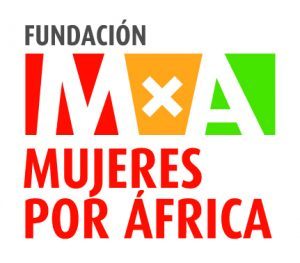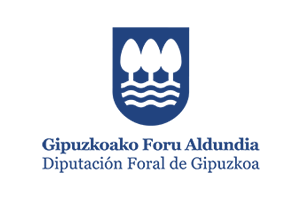From Cameroon-Africa to CFM
From Cameroon -Africa to CFM of Donostia thanks to “Women for Africa” and the Provincial Council of Gipuzkoa

Dr Nkengafac at the chemistry lab in CFM
- Dr Njukeng Jetro Nkengafac ends her first three-month stay as a researcher at CFM thanks to Gipuzkoa Coopera, a project of the Provincial Council of Gipuzkoa in collaboration with Women for Africa.
- These projects have two fundamental axes, on the one hand, to break with the discourse and the unique vision that we have about Africa, since it is a continent where excellence, science, research and the development of knowledge are also present and on the other hand, to give an opportunity to African women, who are also the source and pillar of that excellence.
27th of May 2019
In Donostia / San Sebastián
Gipuzkoa Coopera is a project that was launched by the Provincial Council in 2017 and aims to promote Development Cooperation by extending them to non-conventional entities in the Cooperation field but which have a great impact in their areas of expertise in the territory of Gipuzkoa and beyond.
The Women for Africa Foundation is a private entity founded in 2012 by the former First Vice-President of the Government, María Teresa Fernández de la Vega, with the aim of contributing to the development of Africa through its women. The initiative “Ellas investigan” (They Investigate), was set up by this Foundation and financed by the Provincial Council of Gipuzkoa through the aforementioned Gipuzkoa Coopera project.
Within this framework, the Provincial Council has financed the stay of two African researchers who will carry out their activity for six months in the Donsotia International Physics Center (DIPC) and in the Materials Physics Centre (CFM, mixed centre CSIC-UPV/EHU) with the commitment to return to their universities and research centers to revert and create two-way international contact networks.
Thus, three months ago CFM received Dr Njukeng Jetro Nkengafac, who joined the “Polymers and Soft Matter” laboratory where she has worked side by side with UPV/EHU professor Ángel Alegría. At the end of her first period of stay, Dr. Nkengafac returns to her native Cameroon, where she works at the Agricultural Research Institute for Development (IRAD), and at the Natural Rubber Technology Laboratory of the Latex Plant Program.
The aim of her project was to study the use of agricultural residues as fillers to improve the properties of raw natural rubber. She has shown tremendous gratitude to the team for the help received and for the possibility of experimenting with techniques that were unknown to her. “At CFM they have helped me design methods for the preparation of natural rubber compounds and agricultural residues. I have had access to modern techniques to evaluate the properties of the prepared compounds” commented Dr Nkengafac.
For CFM, the experience has been equally enriching and agreements have already been made to repeat the experience and participate again in the “Ellas Investigan” program financed once again by the Gipuzkoa Provincial Council.
Connecting with Africa
In addition to allowing African women researchers to stay in more than 20 leading research centers in Spain, the “Ellas Investigan” project aims to promote the creation of networks of African women scientists, encouraging cooperation between Spanish and European networks, favoring the creation of joint projects for both voluntary work and regional and international scientific cooperation between academia, research centers and industry.
These projects are part of Gipuzkoa Coopera through which six prestigious Gipuzkoa institutions from the world of art, culture, science, sport and gastronomy, such as the Aiala de Karlos Argiñano Hotel School, Kukai Dantza Taldea, Tabakalera, DIPC, Real Sociedad Fundazioa, Zinemaldia, ASPEGI and CFM are each developing a cooperation project.





